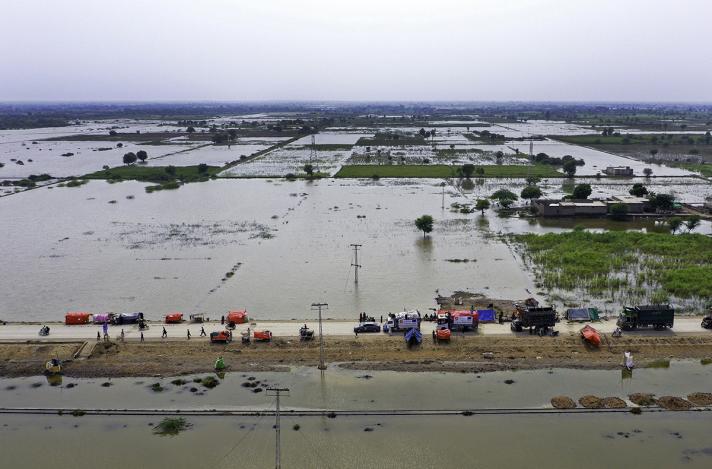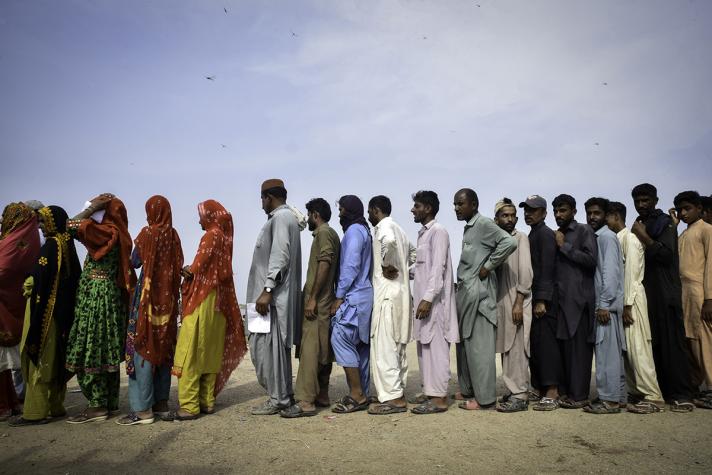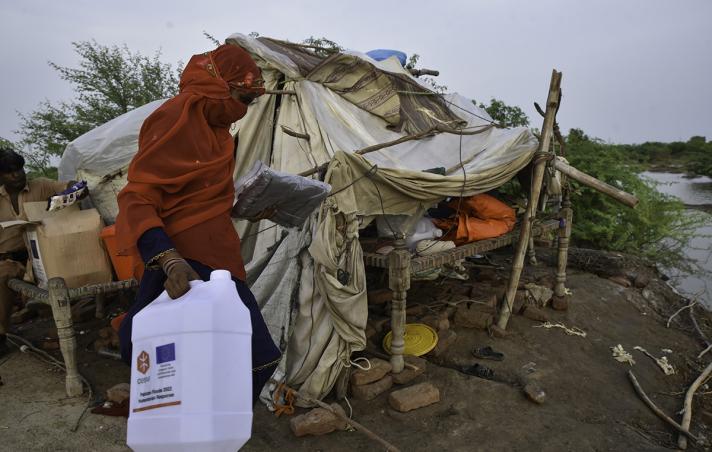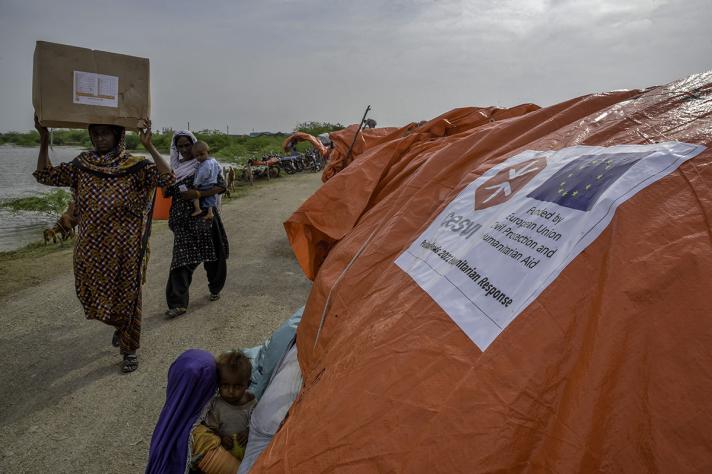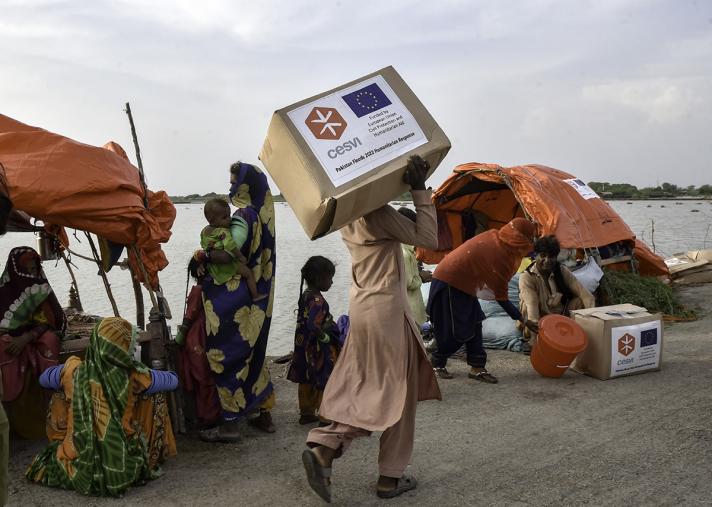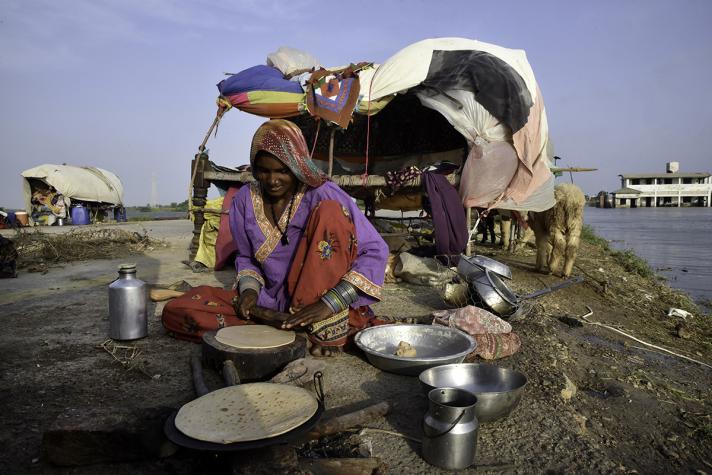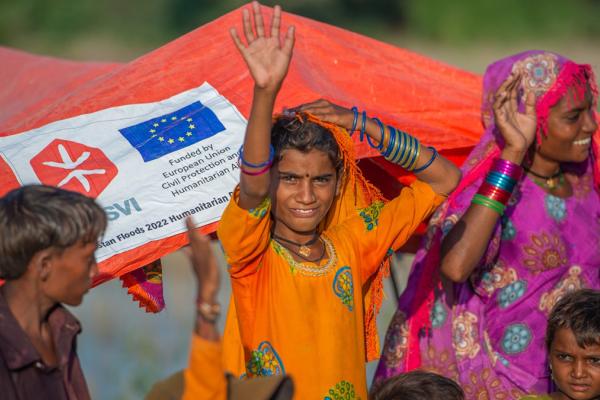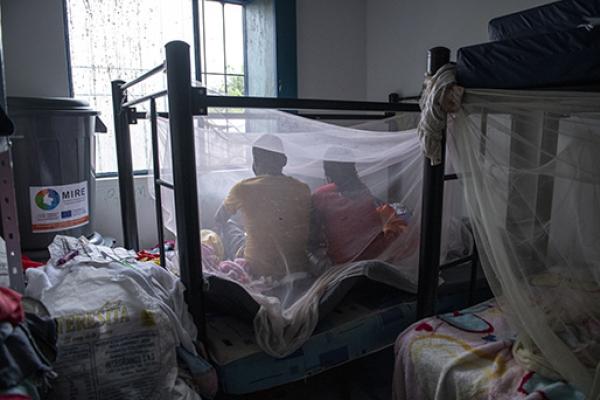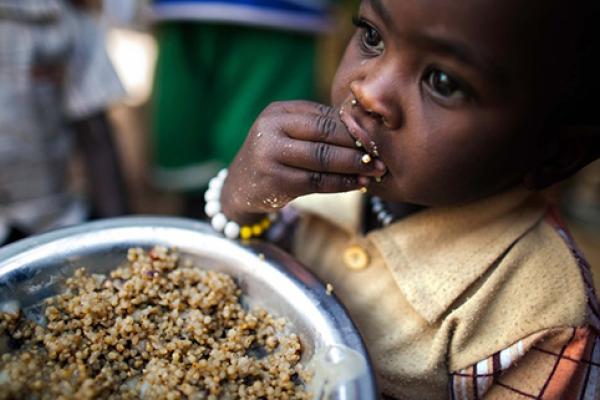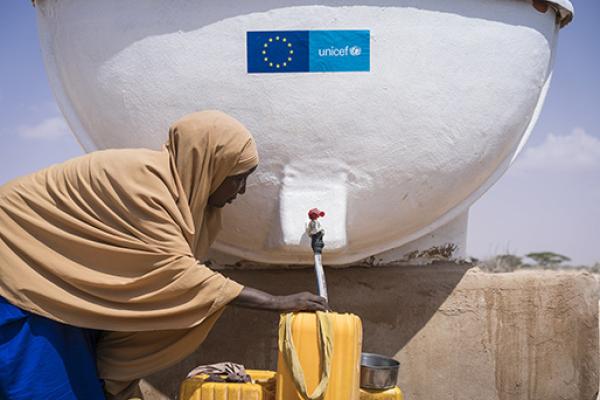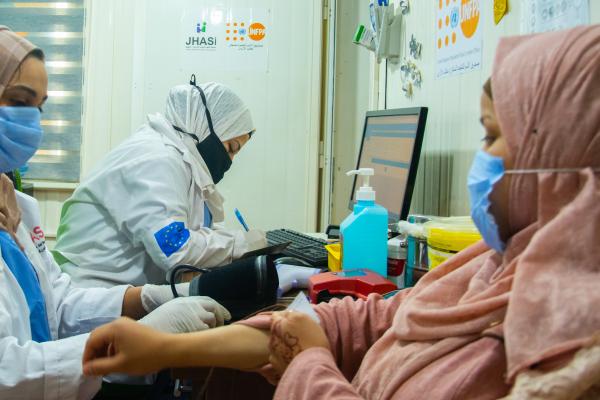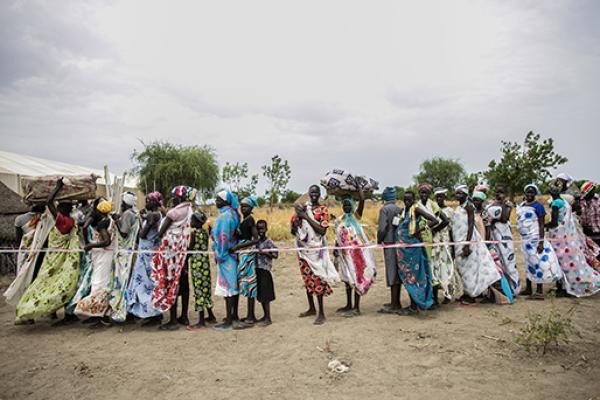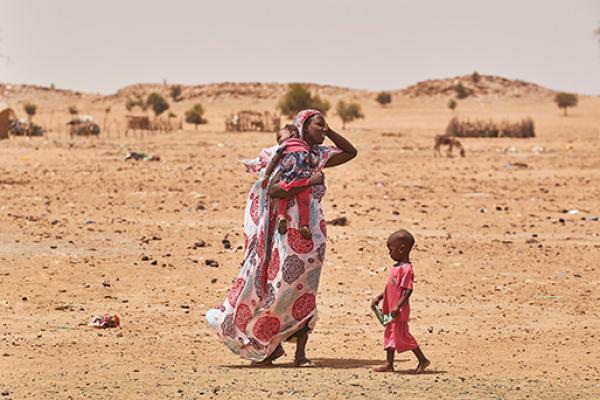Torrential monsoon rains have triggered the most severe flooding in Pakistan's recent history, washing away villages and leaving millions in dire need of humanitarian aid.
In the wake of the emergency, the EU responded by releasing over €2.35 million in humanitarian funding, delivering life-saving aid across the country thanks to its partners.
We have also coordinated the incoming assistance offered by Member States through the EU Civil Protection Mechanism.
EU humanitarian funding has helped provide temporary emergency shelters, food and clean water, cash transfers, and primary healthcare services to those affected.
In one of the most affected areas, the EU’s humanitarian partner Cesvi came to the aid of a community displaced along a narrow road in Sindh province.
Story by Federica Cuccia and Peter Biro, EU Civil Protection and Humanitarian Aid Operations.
Photos © European Union, 2022 (photographer: Abdul Majeed)
Publication date: 26/09/2022

